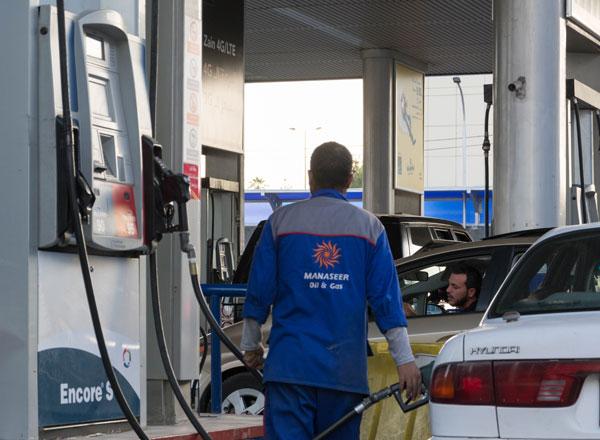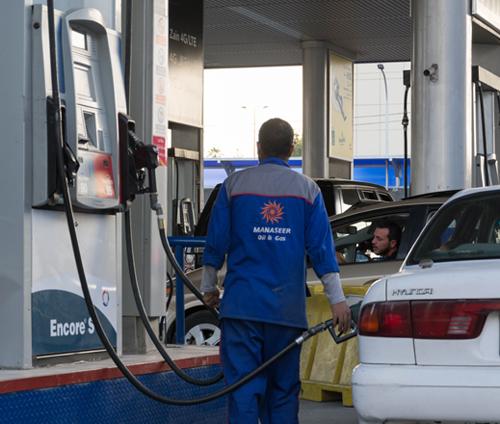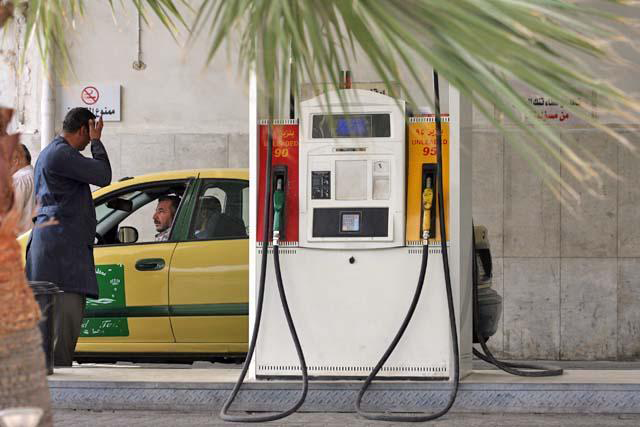You are here
No rise in fuel prices for March
By JT - Feb 28,2017 - Last updated at Feb 28,2017

One litre of unleaded 90-octane gasoline will continue to be sold at JD0.665, while a litre of unleaded 95-octane gasoline will cost JD0.880 in March (Photo by Amjad Ghsoun)
AMMAN — The government on Tuesday decided that the prices of fuel products will remain unchanged in March.
The decision, issued by the government pricing committee, was taken based on the committee’s review of international oil prices, the Jordan News Agency, Petra, reported, citing a committee statement.
The decision to maintain the prices came despite the increase of crude oil and fuel prices on the international market by 1 per cent in February compared to January, with prices rising from $53.5 to $55.16 per barrel, the committee said.
One litre of unleaded 90-octane gasoline will continue to be sold at JD0.665, while a litre of unleaded 95-octane gasoline will still cost JD0.880, with diesel and kerosene staying at JD0.480 per litre, as in February.
The price of a 12kg gas cylinder, used for cooking and for heating purposes, remains at JD7, although its international price increased to JD9, the committee said.
The panel meets monthly to adjust prices in line with changes in oil prices on the international market.
Prices of oil derivatives on the local market are calculated based on international prices, taking into account other costs such as shipment, handling and taxes.
Overall taxes on oil derivatives are as follows: 22 per cent on 90 octane, 40 per cent on 95 octane and 6 per cent for all other fuel products, except for heavy oil.
The government in June 2016 decided to impose a fixed Treasury allowance on fuel amounting to 25 fils per litre, in light of Jordan’s agreement with the International Monetary Fund and in implementation of the Cabinet’s decision to add 25 fils to fuel prices to support the budget.
In February, the government also imposed a fixed 30 fils increase on gasoline prices to support the Treasury under “economic correction measures”.
Also in February, activists called for a “fuel boycott” over one weekend to protest hikes in prices, urging motorists not to use or refuel their vehicles to protest the rise.
The Jordan Petroleum Refinery Company (JPRC) imported 2,978,000 tonnes of crude oil and refined 60,000 barrels daily in 2016, the committee said in a statement released last Friday.
The imports met 50 per cent of the Kingdom’s diesel needs, 42 per cent of gasoline needs and 100 per cent of jet fuel and kerosene needs, while the rest was imported by the three main fuel companies — Total Jordan, Manaseer Oil & Gas and the JPRC’s Jordan Petroleum Products Marketing Company.
Related Articles
AMMAN — The Ministry of Energy's fuel pricing committee on Friday decided to maintain the prices of unleaded 90- and 95-octane gasoline, whi
AMMAN — The government on Friday decided to increase the prices of gasoline, kerosene and diesel, and to maintain the price of gas cylinders
AMMAN — The Ministry of Energy's fuel pricing committee on Friday decided to increase the prices of diesel and unleaded 90- and 95-octane ga


















